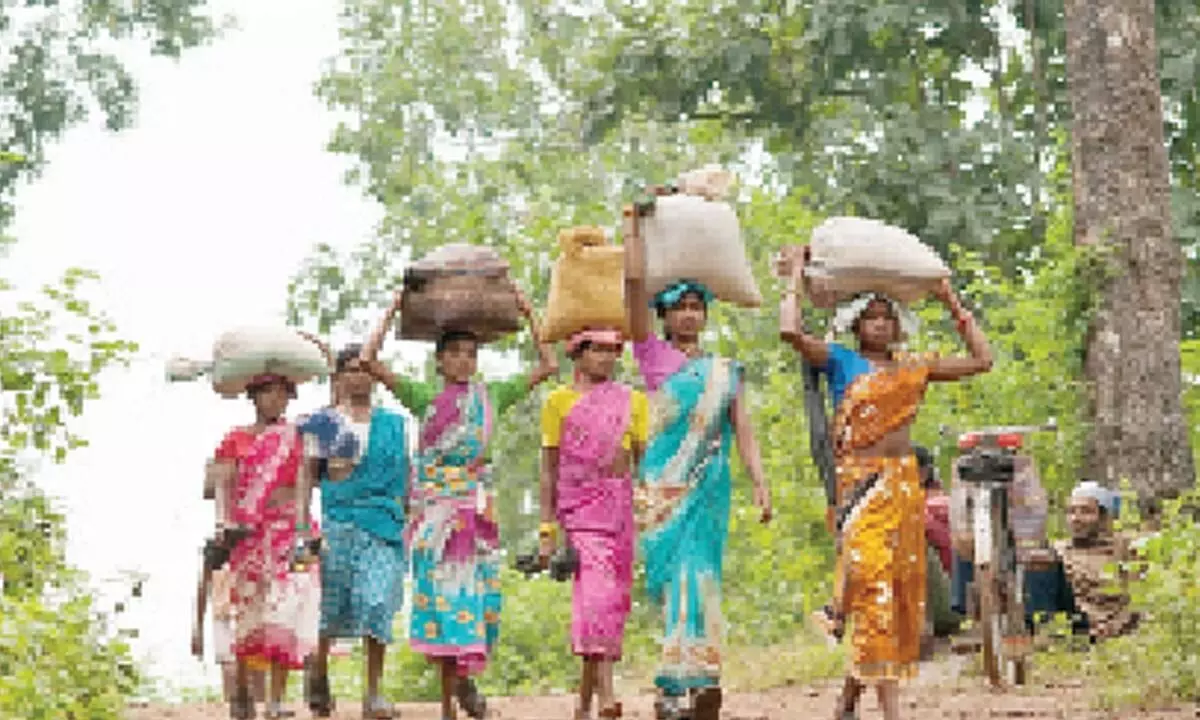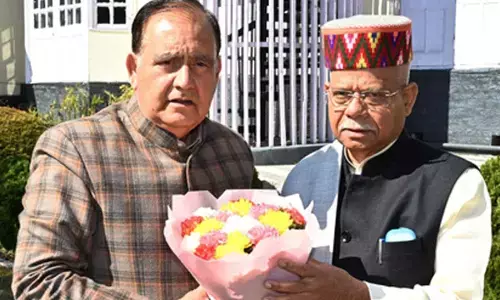Fadingbonding, relationship and responsibility

At the age of 75 years, reminiscing early and late childhood days in remote native village and thenin a nascent urbanized town, and later shifting to the capital city for college education and eventually making it a permanent residence, is like enthusiastically cherishing those precious times in every aspect of life, that never ever come again and feel disenchanted for missing them.
At the age of 75 years, reminiscing early and late childhood days in remote native village and thenin a nascent urbanized town, and later shifting to the capital city for college education and eventually making it a permanent residence, is like enthusiastically cherishing those precious times in every aspect of life, that never ever come again and feel disenchanted for missing them.Thekind of durable bonding, relationship and responsibility’prevailing then is totally fading day-by-day for reasons unable to comprehend, which is of great concern. Interestingly many friends and relatives in the same age group of minehold a similar view.
The whole community in villages by and large, despiteprevalence of some social evils here and there, was like a ‘UniversalFamily’ or the ‘VasudhaivaKutumbam,’ helping one another through thick and thin with animmense sense of togetherness.Whatever might be the kind of help that one needed, irrespective of an auspicious or inauspicious occasion, rest of all, in tune with their ability, used to offersupport, either monetarily or in kind or a physical help.
For instance, whenoutstation friends and relatives visit to someone’s house, which are normally small in size in villages, to facilitate their comfortable stay, others used to offer accommodation in their houses or used to provide facilities like extra portable cots used in villages. Similarly, when marriages were (normally) performed in villages, guests who included friends and relatives, coming from other places, used to arrive couple of days in advance with a small luggage of a typical bedding (Bistari) and a small bag, place it aside in a corner of bride’s or groom’s house. They invariably used to stay another couple of days after the marriage, spend time in pleasant and hilarious chatting and eating the best of the food, served by hosts, the raw stuffs for which like vegetables, rice etc., all grown in villages. While witnessing the marriage related rituals from one side,inviteeswere enjoying playing cards over village specializedsnacks.
Gone are those days of performing marriages in villages or at the most became a rare event.Guests also seldom come in advance not to speak of staying for more than half-a-day. The one-time exquisiteness of Canopies with leaves of palm trees, decoration of coconut leaves, and dry weed (Kus kus) stickscoupled with a littleconversation of flirtationamong boys and girls of maternal uncle and aunt is now history. Everything has become mechanical and unnatural!!!
The scenario in towns and cities is totally a different story. Invitees including close relatives and friends, rarely come and stay in the houses of bride or bridegroom not to speak of in advance. Notwithstanding the fact that dowries or formal gifts from bride’s side to groom’s sideare prohibited by law, demand for expensive star hotel accommodation to the friends and relatives of bridegroom of outstation, is not uncommon. However, few may prefer reserving on their own and attend the wedding as a mere formality, and leave with or without diningto prepare for return journey.
Those who are from the same place also, by and large, attend the wedding by coming exactly on time of Muhurta when the ‘cumin-jaggery’ is administered, signifying the auspicious moment of wedding. There will normally be large queues to bless the couple after this with a preferential treatment to VIPs and VVIPs often awkwardly regulated by ‘Bouncers.’ The ‘Hearty and Heavy Meal’ with a variety of continental and intercontinental veg-nonveg dishes with plate count have become exhibition of wealth. The earlier tradition and culture of formal request by the host to the invitees for comfortable dining before leaving is absent. The enormous wastage of food is unnoticed and hardly any regulation from governments in this regard is noticed!!!
Performing marriages for three, five or even more days with a variety of traditional programs, ceremonies, or rituals of the past like divine story telling (Hari Katha or Burra Katha) by professionals, is now limited to just half-a-day. The practice these days is, in addition to half-a-day marriage, wealthy people are stretching with displays like (Sangeet) musical night, mehndi, last bachelor’s party, reception dinner etc. often exhibiting the host’s wealth. The warmth with which the invitee guests are received dependsmostly ontheir status!!!
Another concern is, the earlierconvention of students staying in their relatives, normally in maternal uncle or maternal aunt or other close relativesor parents’ friends’ house when they required to study in towns or cities away from parents is no more observed. Staying and dining in the relatives’ or parents’ friends’ house those days was felt like an ‘Affectionate Right’ andfor those who allowed them it was like an ‘HonoredResponsibility.’
That custom, practice and etiquette has faded out. Now-a-days for someone to drop in a relative’s house, he or she feels delicate to stay and so also the host will be in hurry to drive them away. Even extending invitation for a lunch or dinner to their houses is not observed and, in its place,they are being taken to hotels or clubs depending upon the status. Strangely, both the joint family or joint relationship system has totally disappeared!!!
Adhering to ‘Secrecy’by nuclear families and individuals that has regrettably become the order of the day and a necessary evil is another big concern.In the ever-changing scenario and context of diminishing human values, certain amount of ‘Secrecy’ may be acceptable, but not as a matter of repetition!!! However, as in the past, these days, if one reveals personal matterseven to a close friend or relative, significant number of them, improperly resort to spreading gossips adding ‘Chicory,’to original, often in a damaging manner.
For instance, if a health problem of a family member is shared with friends or relatives, to lighten the burden in the mind, it turns out to be the other way round resulting in increasing the burden. Togetherness for finding solutions to problems is slowly vanishing, giving credence to decision of maintaining secrecy. Gone are the days when near and dear persons were among us to keep ‘close to the chestor heart’ others’ hardships. Harsh reality now is intimacy itself is decreasing. Instantaneous response of friends and relatives, even when distant kith and kin are hospitalized, is not the same as it was in the past.In the past, financial problems were also shared among friends and relatives. Despite inadequate finances, helping each other was based on munificent affection and goodwill. These days no such feeling, albeitpersons are in a position to extend help and financially strong. Many are sympathetic but nor Empathetic!!!
Yet another disproportionateand real concern is the increasing attitude of ‘Jealousy and Enviousness.’ What it was once a genuine expression of happiness when a near and dear or even distant one gets a good job or promotion or chance to go abroad or gets a reward or award etc.
Has now become a formality and an unexpressed jealousy and envy in many. Well, there is no end to the diminishing value system and looks none is an exemption to the ever-changing scenario. Changing with the changing times is the only alternative!!!Then let us change.
(The writer is CPRO to the Chief Minister of Telangana)









